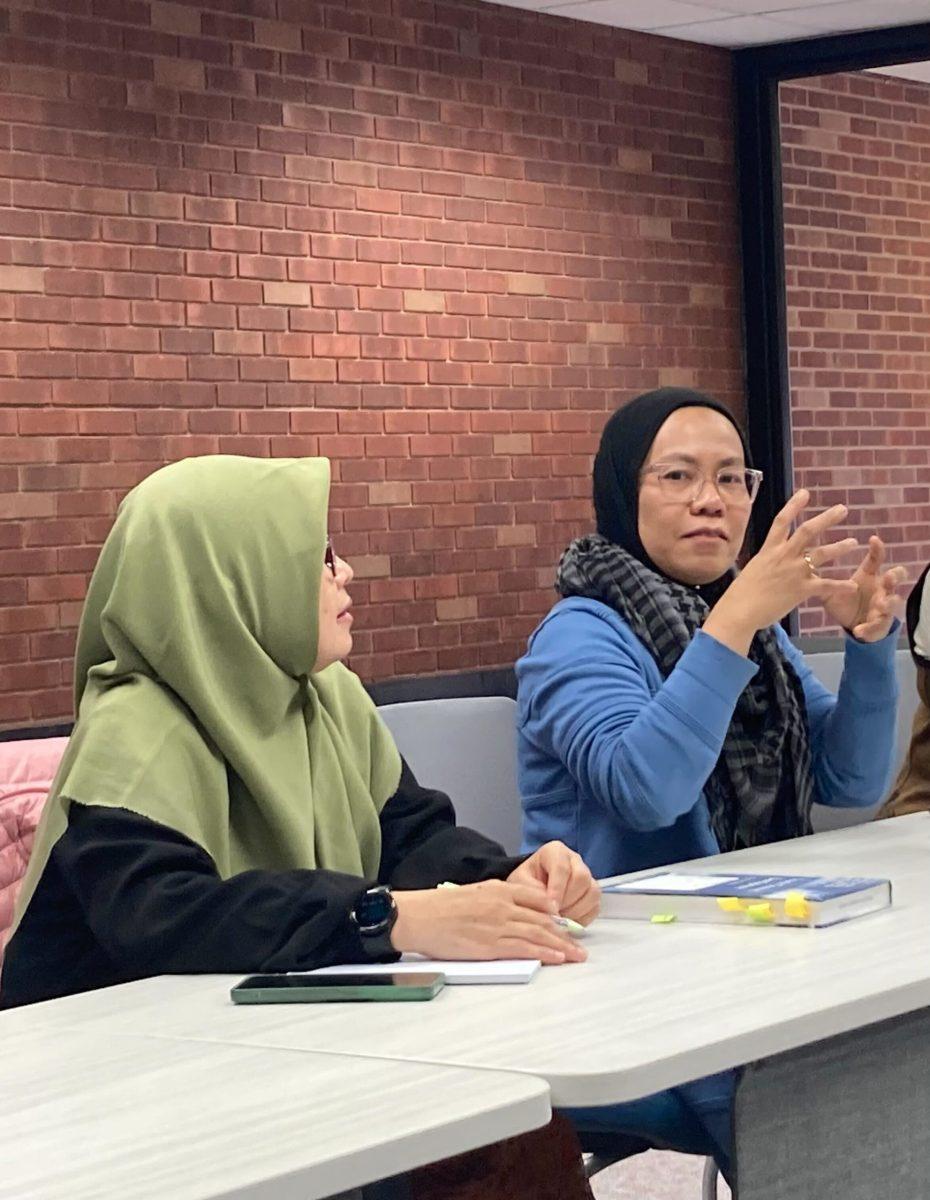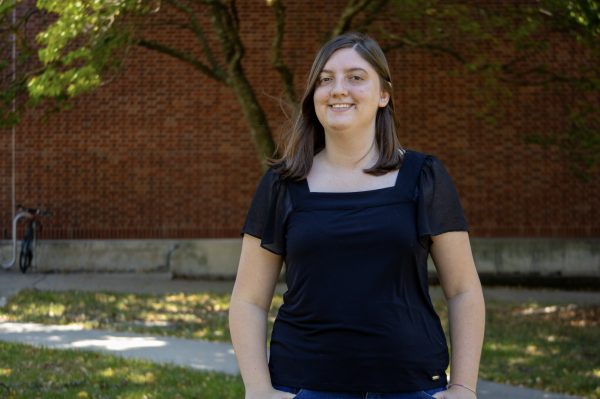Before the discussion began, attendees wrote down answers to “What makes a city livable?” These included public transportation, peace and the absence of racism.
“The way that I define livable is really influenced by the places that I’ve kind of rooted myself in,” Dian Nostikasari, assistant professor of environmental science and sustainability, said to begin the talk. “You were asked to write down what you think makes this city livable because we wanted to start with a shared understanding that we will have some different approaches how we think about livability and how we work towards achieving livability based on lived experiences and expertise that we have.”
Speakers Nostikasari and Suryani Eka Wijaya, a visiting Fulbright scholar, hoped to partially answer the question throughout the talk, discussing their research on the subject and livability plans related to Des Moines. Titled “Des Moines as a Livable City,” the talk was part of the Humanities Center Colloquium series, where Drake faculty present their ongoing research.
Nostikasari grew up in Jakarta, Indonesia, where she later practiced as an architect. She has led multiple groups of Drake students there to explore the city’s infrastructure. Currently, 40% of Jakarta is below sea level, and the city is sinking. However, it also has a new mass rapid transit system.
“When I think about livability, I actually have hesitations about accepting that we need to be in a livable place because it is the way that we frame what is living. That it’s not just meeting basic necessities, but it is a situation where we can try [to] be independent and be ourselves in the best possible ways,” Nostikasari said.
Nostikasari focuses on engaging young people with their communities with projects such as Walk My Bricks, a youth-led walking tour of Oakridge, a neighborhood in Des Moines. The students involved designed the website and logo.
“They really contributed to the stories that they tell about their place and what they feel there,” Nostikasari said of the students involved in Walk My Bricks.
Wijaya comes to Drake through the Fulbright Visiting Scholars Program, which gives grants to faculty and professionals around the world to travel to the U.S. for research and lecturing. Wijaya, who is also originally from Indonesia, traveled to New Zealand for her PhD, conducted research in Japan and lived in Australia for two years.
“When you go to that city, you want to go back again and again and again. It’s like you are connected to that place. You belong to the place even though you are a visitor,” Wijaya said, about the cities she’s lived in.
Wijaya discussed her research on the definition of “livable,” with a focus on affordable housing and transportation. One thing she focused on in the talk was transportation-oriented development, basing the development of cities around public transportation.
“TOD [transportation-oriented development] is giving us the chance for all human interactions for the economic, social and also engagement as well,” Wijaya said. “It’s not only peaceful transit, where you just stop and go in your own direction, your homes, your office, but gives us some spaces where we can do some activities.”
Wijaya discussed MoveDSM, a master plan that attempts to outline how transportation in Des Moines could evolve in the next 25 years.
“Everything is there. We just need to take [MoveDSM] out and put them as a TOD plan and [build] the institutions,” Wijaya said.
After Nostikasari and Wijaya presented their research, they opened the discussion up for questions. The questions were more focused on Iowa’s public transportation development, as members of the audience raised questions about Des Moines and its surrounding cities.
Delaney Borja, a senior studying public relations and digital media production, came to get a more well-rounded view of livability in cities for her article on walkable cities and their environmental impact for her capstone project, Urban Plains.
Borja enjoyed “getting a perspective on public transportation and how that plays a key role on the walkability and livability in a city” and said she was looking forward to connecting with some of the professionals who’d attended the talk to further shape the article.
At the end of the talk, Nostikasari encouraged audience members to get involved in their communities to support public transportation, whether it was through city council meetings or like-minded organizations.
“Transportation is not just roadways,” Nostikasari said. “[If] you don’t have the means to travel to places where you need to vote, you can’t vote, right? It’s healthcare access, food access. It’s inherently a civil rights question.”
On Mar. 22, the colloquium series will host Nicole Ramsey to talk about culturally responsible music integration in non-music classrooms.








